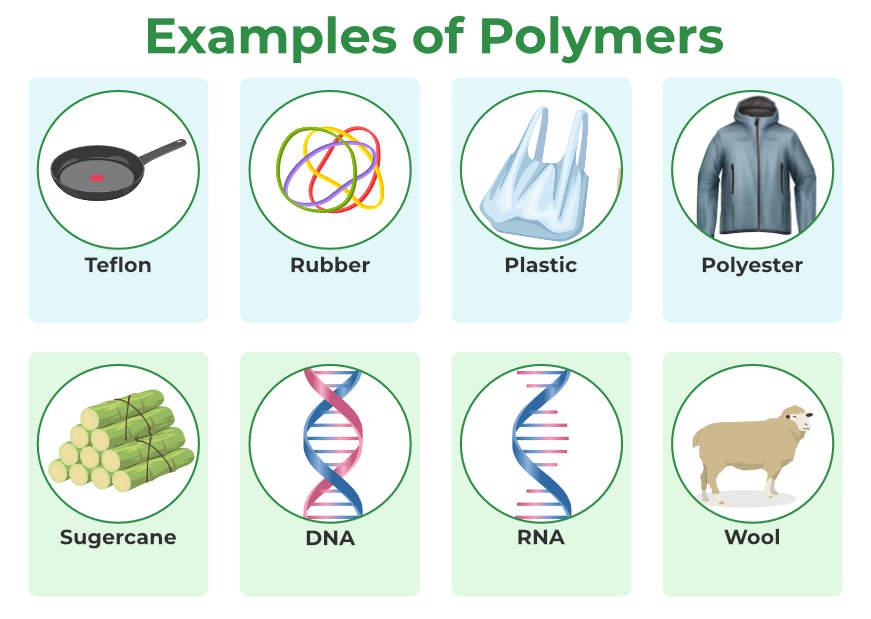Reusing Polymers: Promoting a Circular Economic Situation
Reusing Polymers: Promoting a Circular Economic Situation
Blog Article
Checking Out the Varied Applications and Advantages of Polymers in Different Industries
Polymers, with their diverse series of buildings and capabilities, have come to be vital in numerous industries, each reaping one-of-a-kind take advantage of their application. Polymers. From improving security and performance in the vehicle industry to changing medical gadgets in the healthcare sector, polymers play a crucial duty. Moreover, their environmentally friendly nature is modifying the landscape of sustainability methods. As we dig right into the depths of polymers in electronic devices, we uncover sophisticated advancements, while their architectural stability changes the world of construction and infrastructure. The prevalent impact of polymers throughout industries is a testament to their flexibility and flexibility, forming the future of plenty of industries.
Automotive Market Applications
Polymers play a crucial role in enhancing the efficiency and durability of different parts within the auto field. One famous use of polymers in the auto industry is in the production of lightweight elements.

Health Care Sector Advantages
In numerous healthcare applications, the benefits of making use of polymers are widely acknowledged for their diverse range of valuable properties. Polymers play a vital duty in the health care sector as a result of their convenience, biocompatibility, and cost-effectiveness. Among the key benefits of polymers in healthcare is their ability to be tailored to specific demands, such as flexibility, sturdiness, and biodegradability, making them suitable for a large range of clinical applications.
Polymer-based materials are extensively made use of in medical devices, such as catheters, implants, prosthetics, and medicine distribution systems, due to their biocompatibility and ability to mimic all-natural cells. These materials can minimize the danger of allergic reactions or rejections, enhancing client safety and security and outcomes. In addition, polymers are lightweight, making them ideal for wearable medical tools and ensuring individual convenience.
Moreover, polymers allow the advancement of innovative therapy approaches, such as hydrogels for cells engineering and nanocomposites for targeted drug delivery. Their convenience of processing and sterilization makes them crucial for preserving high requirements of hygiene in medical care settings. In general, the diverse advantages of polymers add dramatically to improvements in clinical modern technology and individual care.
Ecological Benefits of Polymers

In addition, polymers can add to power financial savings due to their light-weight nature. In industries such as transportation, light-weight polymer products can aid reduce fuel intake and greenhouse gas discharges. Additionally, polymers can make it possible for the advancement of energy-efficient products such as insulation materials that enhance energy preservation in structures.
Moreover, polymers play a vital duty in lowering water pollution. For instance, making use of polymer-based filtering systems can efficiently eliminate pollutants and impurities from wastewater, guarding water resources and ecosystems. In general, the environmental advantages of polymers make them valuable assets in advertising sustainability and environmentally friendly practices throughout different industries.
Polymers in Electronic Devices and Innovation
Taking into consideration the enhancing demand for ingenious our website and lasting remedies in contemporary industries, the combination of advanced polymer technologies in the world of electronics and innovation has actually become a pivotal technique for driving performance and performance. Polymers have actually reinvented the electronic devices sector by making it possible for the manufacturing of lighter, extra flexible, and resilient electronic tools. From smart devices to medical devices, polymers play an important role in improving item style and functionality.
One significant advantage of polymers in electronic devices is their shielding residential or commercial properties, which assist protect delicate electronic parts from environmental aspects and electric interference. Furthermore, polymers are crucial in the advancement of versatile displays, wearable innovation, and printed electronics, using unlimited opportunities for developing smart and interconnected tools.
In addition, the usage of polymers in digital packaging has actually led to advancements in miniaturization and thermal administration, boosting the total performance and reliability of digital systems. As modern technology continues to advance, the adaptability and versatility of polymers will definitely drive better advancement in the electronic devices market, shaping the future of modern technology.
Function of Polymers in Building And Construction and Infrastructure
Polymers provide great post to read various benefits in the building market due to their versatility, resilience, and cost-effectiveness. One essential duty of polymers see this in construction is their use in coatings and sealants, supplying security versus ecological factors such as wetness, UV radiation, and corrosion.
Furthermore, polymers play an important duty in lasting building methods by making it possible for the development of energy-efficient structures. Shielding materials made from polymers aid regulate interior temperature levels, reducing the need for home heating and cooling systems and inevitably reducing power usage. The use of polymer-based compounds in infrastructure tasks such as bridges and roads improves their longevity and lowers upkeep expenses. On the whole, the consolidation of polymers in building and construction and facilities showcases their significant influence on modern-day design methods.
Conclusion
In conclusion, polymers play an important duty in numerous sectors such as auto, medical care, environmental, electronics, and building. From improving gas effectiveness in cars to boosting medical gadgets, polymers supply various benefits.
Report this page